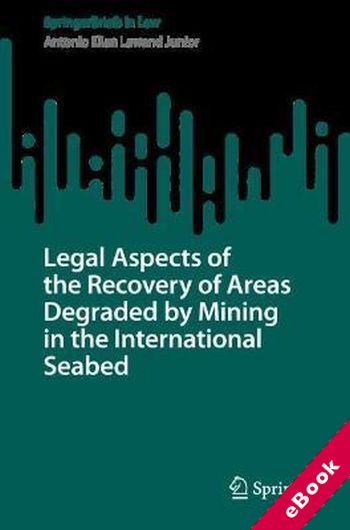
The device(s) you use to access the eBook content must be authorized with an Adobe ID before you download the product otherwise it will fail to register correctly.
For further information see https://www.wildy.com/ebook-formats
Once the order is confirmed an automated e-mail will be sent to you to allow you to download the eBook.
All eBooks are supplied firm sale and cannot be returned. If you believe there is a fault with your eBook then contact us on ebooks@wildy.com and we will help in resolving the issue. This does not affect your statutory rights.
This book offers an innovative approach to the recovery of areas degraded by international seabed mining, one that considers the feasibility of a standard that would allow mining in these areas in apparent antinomy with their other potential present and future uses.
The book begins by identifying and explaining the legal norms that allow mining in these areas and the rights and obligations in mining exploitation concomitant to other uses of them, based on an analysis of mining operations' duty of Recovery of Degraded Areas. It reveals an antinomy in international law, namely the compatibility of degraded areas and their various present and future uses with the mining of the international seabed.
The freedom to mine these areas could destroy the least impacted biome on the planet and undermine the international law system represented by the Cultural Heritage of Mankind and the Third United Nations Convention on the Law of the Sea ("UNCLOS III"). Recovery of Degraded Areas is an obligation in mining and, as such, requires structural changes in the reading of UNCLOS III; recognizing international roles other than those related to sovereignty; projecting the law into the future; and rereading it in light of international environmental law and its instruments.